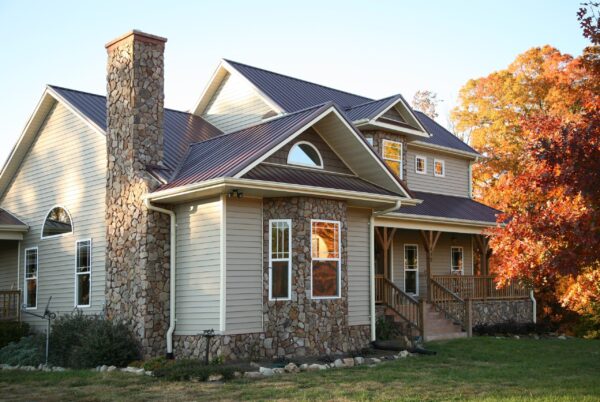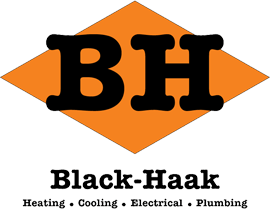
Hot water heaters are an essential part of your home comfort system. Many homeowners have questions about how hot water heaters work and what they need to do to keep them running efficiently. Let’s look at some of the top questions people ask about hot water heaters.
What Size Hot Water Heater Do I Need for My Home?
The size of your hot water heater depends on a number of factors, including the size of your household and the amount of hot water you generally use. Most homes in the US require a hot water heater with a capacity of between 30 and 50 gallons.
If you have more than one bathroom in your home or family members who tend to take long showers, you may need a larger capacity tank. Additionally, if you plan on running multiple appliances at once (e.g., dishwasher and washing machine), you’ll also need a larger tank to meet the increased demand for hot water.
What Are the Different Types of Hot Water Heaters?
When selecting a new hot water heater, there are two main types: storage tank and tankless systems. Storage tank heaters store heated water in an insulated tank for future use. This type of water heater is powered by either electricity or gas; gas models tend to be more efficient than electric ones.
Tankless systems are also powered by either electricity or gas, but instead of storing hot water, they produce it only when needed. Tankless systems save money on your utility bill each month because it’s not continuously heating water that isn’t needed. They also save on installation costs since they don’t require any additional tanks. For larger homes with multiple bathrooms, opting for multiple smaller units is often beneficial instead of one large one that serves the entire home.
How Long Do Hot Water Heaters Typically Last?
The longevity of any water heater depends on how well it is maintained over time. The average lifespan of a gas hot water heater is around 8 -12 years, while that of an electric hot water heater is 10 – 15 years. Proper maintenance includes draining the tank annually to remove sediment build-up, keeping the temperature settings low, and avoiding drastic temperature changes that could lead to thermal shock damage to the tank.
Other essential maintenance tasks that should be performed regularly by a professional include:
- Checking nearby pipes for any leaks or corroded parts
- Replacing faulty electrical components such as wires and breakers
- Inspecting the thermostat pressure control valves
- Testing temperature and pressure relief valves
Is It Better To Repair Or Replace A Damaged Hot Water Heater?
This depends on how severe the damage is and how old the unit is. Sometimes, it may be less expensive to have a professional make simple repairs, such as replacing components like thermocouples or heating elements. However, if your unit has significant damage or is over 8-15 years old, then it’s usually more cost-effective to replace it. Otherwise, you might end up repairing it again and again each time something breaks down.
Are There Ways I Can Increase Efficiency?
Lowering energy costs associated with a hot water heater can be accomplished in several ways. You could implement daily conservation habits. These include turning down thermostat settings during non-use times and being mindful about running showers longer than necessary. You could also add insulation around pipes for better temperature retention and install higher efficiency-rated heating elements when a replacement becomes necessary.
What Types of Warranties Typically Come With My Purchase?
Most manufacturers provide some form of warranty coverage when purchasing new units. Specifics will vary significantly between brands. You’ll want to look into details carefully before deciding which would work best for your specific circumstances and needs. Typically, more recent models offer more comprehensive coverage than older versions, but they are also likely more expensive. Also, be sure to review the terms of your warranty. Some require not only professional installation but also require regular maintenance by licensed professionals.
What Signs Suggest I Need Maintenance or Repairs?
Many signs may indicate that maintenance or repairs are required. Decreased amounts of hot water or overall lower water temperatures are major indicators that you have a problem, especially if these changes occur over a short period. Another indicator is a sudden increase in energy bills that can’t be tied to seasonal or other changes. Other common indicators include visible rust spots on the outside of the tank, water around the base of the heater, and loud noises coming from where the appliance was installed.
Is It Safe To Perform DIY Repairs On My Own?
It is not safe for homeowners to attempt DIY repairs on their own. Even if you have some basic knowledge and access to tools, you will likely not have the expertise, skill, or experience needed to carry out complex repairs safely. Professional experts are trained and experienced in their work, so they can correctly identify problems, source the right parts, use the correct tools, and understand existing safety regulations. In addition, local laws may require certain safety inspections for all home repairs before they can be considered compliant with local building codes.
What Temperature Should I Set My Thermostat At?
Setting your thermostat at 120°F (49°C) is the best temperature for your water heater system to ensure optimal efficiency and safety. This temperature is ideal for most households that use standard appliances such as showers, baths, and kitchen sinks. Keeping the thermostat set at this temperature can prevent wasted energy while providing enough hot water for your everyday needs. Additionally, setting the thermostat at this temperature will help reduce the risks of scalding or burns due to excessively hot water.
Are There Any Safety Concerns I Should Be Aware of When Using My Hot Water Heater?
Yes – all types of hot water heaters should be used with caution, but gas water heaters bring additional concerns. A gas water heater operates at very high temperatures and contains combustible fuels such as natural gas or propane. These fuels are dangerous if mishandled or not adequately ventilated. Qualified professionals should always install, maintain, and repair gas water heaters. Otherwise, you’re vulnerable to hazardous fumes or even fire.
Do I Need Additional Protection for My Hot Water Heater?
Depending on where you live, you may need additional protection against flooding or other weather conditions to keep your hot water heater running safely and efficiently. If you live in an area prone to extreme temperatures or heavy rainfalls, you may want to consider installing a temperature and pressure overflow valve as an extra level of protection against accidents or malfunctions, which could lead to major damage and costly repairs.
Call Professionals Today!
We are proud to serve Fox Valley, WI and its surrounding areas with our dependable services and continued commitment to customer satisfaction. At Black-Haak, we don’t just want to be the company your turn to for your plumbing, heating, electrical, and cooling needs but also your trusted partner for maintaining a safe and healthy home. Our Home Protect Service Program offers comprehensive service plans to ensure your home remains free from unexpected repairs and replacements. Call Black-Haak today to schedule a consultation.

